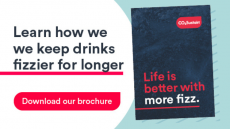Sugar-free drinks may generate ‘false security’ on tooth decay, study finds

That’s according to a new narrative review of literature on the subject by researchers at the University of Helsinki in Finland, Boston University and the University of Southern Nevada in the US.
Published in the peer-reviewed British Dental Journal, the study examines literature published up to the end of October 2010 on the oral health effects of polyols and other sugar-free products within foods.
Dental erosion risk
Nadimi et al. highlighted the potential for hidden risk in sugar-free products, since the effects of acidic preservatives also added to beverages and foods had yet to be properly studied.
However, such ingredients reduced the pH of saliva pH and could, therefore, weaken tooth enamel, the scientists concluded.
They wrote: “Although the presence of acidic flavourings and preservatives in sugar-free products has received less attention, these additives may have adverse dental health effects, such as dental erosion.”
"Furthermore, the term sugar-free may generate false security because people may automatically believe that sugar-free products are safe on teeth," Nadimi et al added.
Cavities form when bacteria convert sugars in food and drink into acid that breaks down tooth enamel.
Polyol-based sugar-free products may decrease the incidence of dental caries, but also carried the potential for dental erosion if they contained acidic flavourings, the researchers found.
However, more research was needed to assess the overall cavity-promoting effect that sugar-free confections might have, Nadimi et al. said.
Manufacturers are catering for consumer demand for low calorie products by using ‘sugar substitutes’ to reduce calorie counts by up to 50 per cent comparatively.
Popularity with diabetics
Such products include sugar alcohol polyols, which are used to sweeten products in categories as varied as beverages, chewing gum and sweets.
However, the use of sugar alcohols is not permitted in soft- or sports drinks within the EU under food additives legislation, although they are cleared for use in such products in the US.
Sugar-free beverage and other food products are particularly popular with diabetics, due to the fact that polyols are not readily absorbed into the intestine.
However, this meant they may cause gastro-intestinal problems such as diarrhoea, said the scientists, although the lack of randomised controlled trials in this area prevented them from drawing conclusions.
Several studies had proven the efficacy of xylitol in reducing or even preventing the risk of dental decay, Nadimi et al noted, although they said the same could not be said for sorbitol.
The researchers noted that sorbitol – which is cheaper than xylitol – is often used to sweeten sugar-free products, but can be fermented into acid by bacteria, so does not have similar cavity-reducing effects.
*Correction: On initial publication yesterday, this article failed to mention the different regulatory situation in the US and the EU regarding the use of sugar alcohols in soft and sports drinks, and has now been updated to reflect this fact.
Source : British Dental Journal
DOI: 10.1038/sj.bdj.2011.823
Title: ‘Are sugar-free confections really beneficial for dental health?’
Authors: H Nadimi, H.Wesamaa, S.J Janket, P.Bollu, J.H Meurman.













